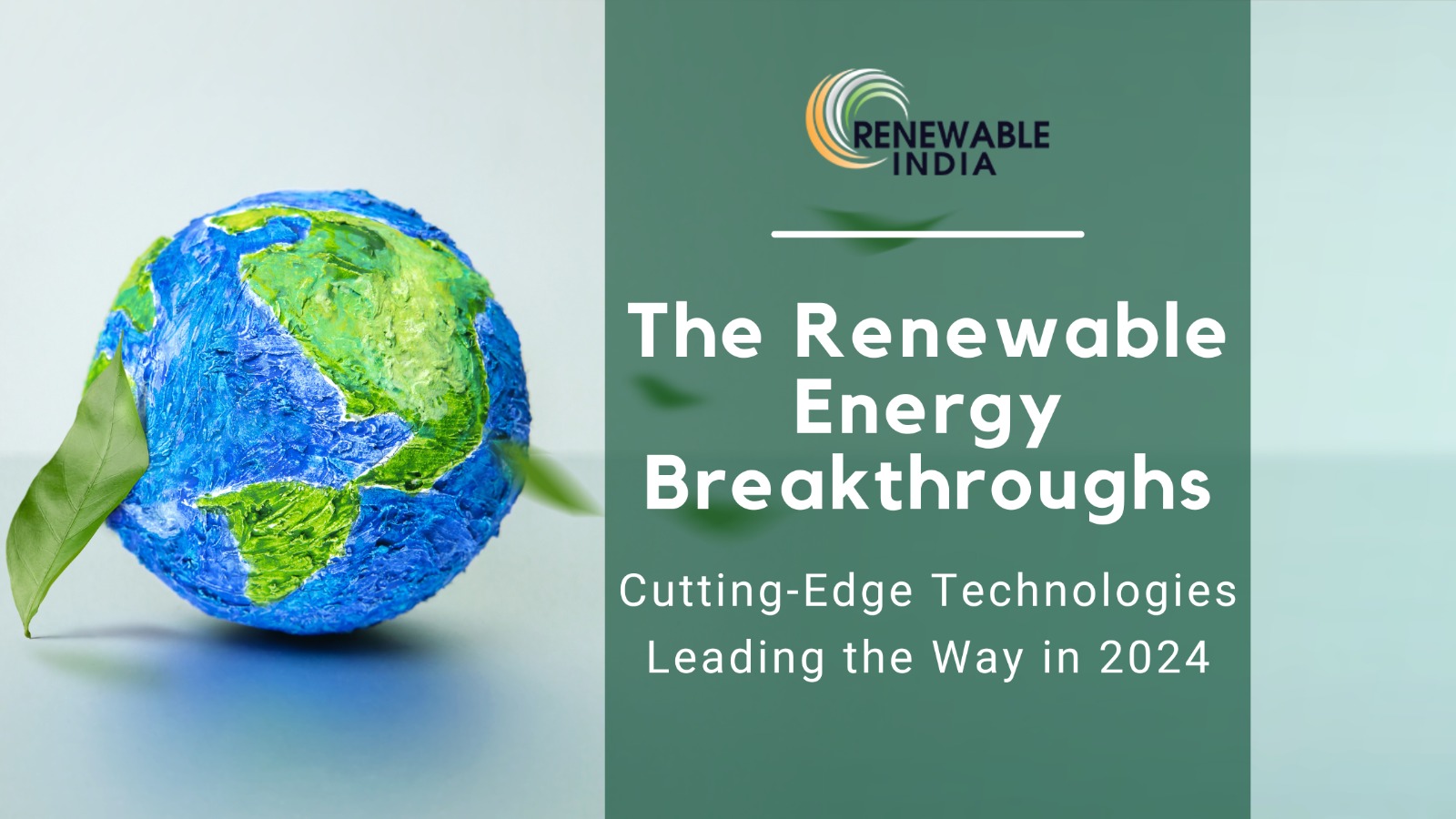
India, a global leader in renewable energy, stands fourth in the world for Renewable Energy Installed Capacity, Wind Power Capacity, and Solar Power Capacity, according to the REN21 Renewables 2022 Global Status Report. Beyond these impressive rankings, India is steering towards a revolutionary energy future with its commitment at COP26 to achieve a staggering 500 GW of non-fossil fuel-based energy by 2030. As the sector continues its upward trajectory, let us explore seven exciting renewable energy innovations that are poised to shape the future.
Solar Module Advancements: One of the most significant contributors to India’s renewable energy growth is the continuous innovation in solar technology. High-efficiency solar modules are at the forefront of this revolution, backed by the government’s investment in their manufacturing. These modules not only enhance energy production but also make solar power more cost-effective, paving the way for widespread adoption.
Wind Energy Storage Solutions: Wind energy has long been a stalwart in the renewable energy landscape, and innovations in energy storage are making it even more reliable. Advanced storage solutions, such as grid-scale batteries, enable the storage of excess energy generated during windy periods. This stored energy can then be utilized during calm periods, addressing one of the primary challenges of intermittent renewable sources.
Biogas from Organic Waste: Turning organic waste into biogas is a game-changer in the renewable energy sector. Innovative processes allow the extraction of methane from organic waste, providing a clean and sustainable source of energy. This not only helps manage waste but also reduces dependence on traditional fossil fuels.
Tidal and Wave Energy Technologies: India’s vast coastline presents an opportunity for harnessing tidal and wave energy. Cutting-edge technologies are being developed to capture the power of ocean tides and waves, providing a consistent and predictable source of renewable energy. This innovation holds tremendous potential for coastal regions and islands.
Smart Grids for Efficient Energy Distribution: The integration of smart grids into the energy infrastructure is revolutionizing the way electricity is generated and distributed. These grids use advanced communication and control technologies to optimize the flow of electricity, reducing wastage and ensuring a more efficient and reliable energy distribution network.
Advanced Energy Storage Systems: As the demand for renewable energy grows, the need for efficient energy storage becomes paramount. Innovations in energy storage systems, including improved batteries and other storage technologies, are addressing the intermittency issues associated with renewable sources. This ensures a more stable and continuous power supply.
Hydrogen as a Clean Energy Carrier: Hydrogen is emerging as a key player in the renewable energy landscape. Green hydrogen, produced using renewable energy sources, is a clean and versatile energy carrier. Its applications range from industrial processes to transportation, offering a sustainable alternative to conventional fuels. India’s push towards green hydrogen production is a significant step towards a cleaner and greener future.
To fuel the workforce behind these innovations, educational institutions are offering specialized programs in renewable energy.
UPES ON, offers a cutting-edge Post Graduate Program in Renewable Energy. Crafted to empower individuals for mid and senior management roles, this program provides a comprehensive, industry-aligned curriculum ensuring a holistic learning experience. Beyond academics, students benefit from hands-on projects, a robust alumni network, and distinguished faculty. UPES ON stands out by facilitating student success through dedicated career mentorship, a vast network of 480+ hiring partners, and accessible financing options like low-interest loans. With prestigious accreditations and rankings, including a NAAC A grade and 39th position in the NIRF University Ranking for 2023, this program offers a unique opportunity for top-tier education and success in the dynamic renewable energy field.
For those entering the renewable energy sector, the Diploma in Renewable Energy at Babu Banarasi Das Engineering College (BBDEC), Lucknow, is a promising choice. Known for its vibrant campus life, BBDEC Lucknow guides students towards lucrative job opportunities with an industry-relevant curriculum. Practical training equips students with the tools needed for success in the renewable energy sector and beyond, making this diploma an ideal starting point for individuals seeking a meaningful impact in the industry.
AD Patel Institute of Technology in Gujarat introduces the state’s first M.Tech. program in Renewable Energy. The Department of Mechanical Engineering, equipped with state-of-the-art laboratories, offers an industry and research-oriented curriculum. Students gain practical exposure through labs like Renewable Energy Lab and benefit from MOUs with institutions like SPRERI. With qualified faculty and placement opportunities in renewable energy-based industries, research institutes, and academia, this program positions students for success in the evolving renewable energy landscape.
India’s renewable energy sector is not just witnessing growth; it is transforming the country’s energy landscape. The innovations highlighted here, coupled with the commitment of educational institutions to provide specialized training, paint a promising picture for the future. As technology continues to advance and investments pour in, India is poised to be a global leader in renewable energy, driving a sustainable and cleaner future for generations to come.
Navigating the Path to a Sustainable Future with Trends of Renewable Energy in 2024
Leave a Reply